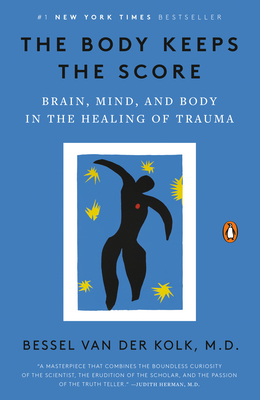
The Polyvagal Theory: Neurophysiological Foundations of Emotions, Attachment, Communication, and Self-regulation (Norton Series on Interpersonal Neurobiology)
Description
A collection of groundbreaking research by a leading figure in neuroscience.
This book compiles, for the first time, Stephen W. Porges’s decades of research. A leading expert in developmental psychophysiology and developmental behavioral neuroscience, Porges is the mind behind the groundbreaking Polyvagal Theory, which has startling implications for the treatment of anxiety, depression, trauma, and autism. Adopted by clinicians around the world, the Polyvagal Theory has provided exciting new insights into the way our autonomic nervous system unconsciously mediates social engagement, trust, and intimacy.
Praise for The Polyvagal Theory: Neurophysiological Foundations of Emotions, Attachment, Communication, and Self-regulation (Norton Series on Interpersonal Neurobiology)
[C]hallenges professionals who interact therapeutically, educationally, clinically or even socially with vulnerable populations to share knowledge and work across our specific disciplines, to prevent, identify and treat mental illness.
— Journal of Unified Psychotherapy and Clinical Science
Stephen Porges has been at the forefront of the investigation of the interplay between neurophysiological processes and developmental status.... It is with The Polyvagal Theory that Porges now presents, in a well-delineated and articulated volume, a highly testable set of hypotheses regarding how the human (and more broadly, mammalian) nervous system has evolved to promote affective regulation and social interaction.... I commend Porges on this effort. Substantial research across a significant career has been well considered and integrated into a quite engaging and stimulating model regarding the relationship between the heart and the brain.
— PsycCritiques
[O]ne of the most important books written on the nervous system in the last fifty years. Porges’s ambitious, meticulous, synthetic theory provides a missing link between mind and the nervous system. It also helps explain, in fine detail, how our individual nervous systems influence, and are influenced by, our interactions with others. Suddenly we understand things novelists have described for centuries: how it is that a facial expression, a gesture, a certain tone of voice, can trigger a radical mental reorganization, and lead to engagment, and how our mental and nervous system states shift. Porges’s studies and his theory of the social vagus represents a major advance in human knowledge, and is already improving the practice psychotherapy and mind-body medicine.
— Norman Doidge, MD, author, The Brain That Changes Itself
A truly revolutionary perspective on human nature, Porges challenges current theory, illuminates old findings so that we see them differently, and raises dozens of questions for new scientific research. The reach is broad, the depth astounding.
— Paul Ekman, PhD, Professor Emeritus, University of California at San Francisco, and President & Founder, Paul Ekman Group, LLC
The Polyvagal Theory is at the leading edge of psychosomatic medicine and body-mind therapies. It is a vital contribution to scientifically-informed clinical practice. Psychologists, analysts, physicians, bodyworkers, and educators are provided with an essential map to help guide them in tracking the psychophysiological states of their clients, discern where they are ‘stuck,’ and help them to heal and move forward in life. Dr. Porges’s great contribution is now compiled in this one astounding comprehensive volume. It is a must-read for clinicians and psychobiological researchers.
— Peter A. Levine, PhD, author of In Unspoken Voice: How the Body Releases Trauma and Restores Goodness













